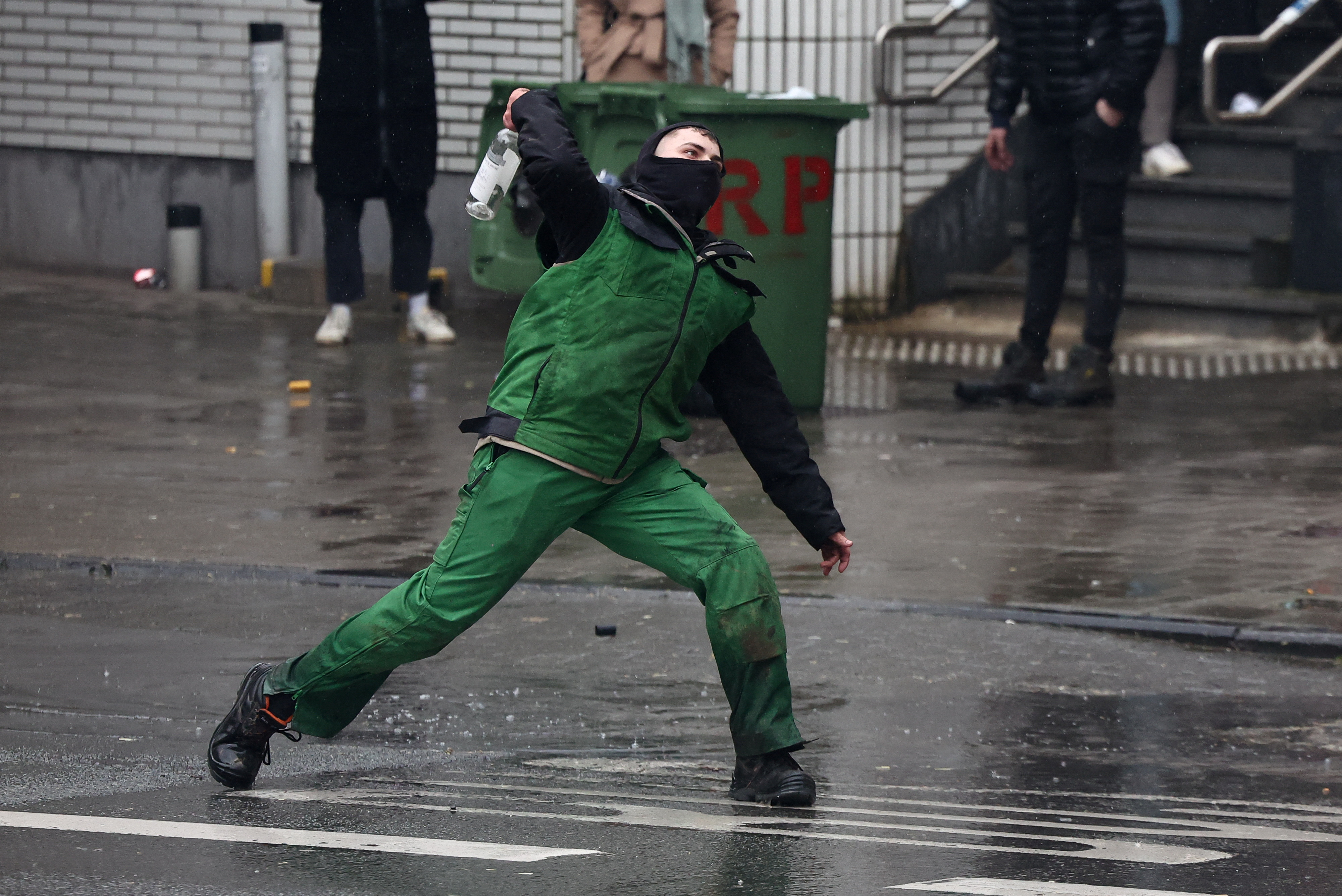The act of covering one’s face at a protest may be outlawed, according to a new bill put forward by the government.
The bill, which has been put forward for consultation, is set to bring in a raft of new regulations regarding protests and other large gatherings of people.
According to article 11 of the bill, any person who participates in a protest and “hides their face in any way to the point where it cannot be recognised, without justification”, will be considered to have been hiding their face “for the purpose of committing an offence.”
This crime will entail a two-year jail sentence or a maximum fine of €4,000, or both.
In addition, the bill states that those wishing to stage a protest should notify the authorities of their intention to do so at least seven days before the protest takes place.
Spontaneous protests are still nonetheless foreseen in the law and will be permitted “as long as there is no risk that public safety or public order will be threatened” by the protest taking place.
However, organisers which fail to send notification of a protest or organise a protest which “differs substantially from that provided for in the notice” would be deemed to have committed a criminal offence and thus be liable for a €2,000 fine.
According to the bill, should the authorities wish to place restrictions on a protest, they would have to convene a meeting together with the chief of police and a representative of the protest’s organisers to discuss the matter.
If there is unanimity between the competent authority, the police, and the protest’s organisers regarding such restrictions, they will be imposed. If an agreement cannot be reached, the matter will then be referred to the justice minister of the day.
The bill states that the minister must take into account the size and location of the protest, as well as the “degree of danger”, the potential risk of confrontation should another protest clash with it, and “the behaviours observed in previous parades” organised by the same people.
Anyone who violates the restrictions implemented on a protest will also be liable for a €2,000 fine.
The bill also foresees that if the competent authority or the chief of police “reasonably believes” that “the existence of the Republic would be threatened” by a protest, they can request that the justice minister of the day ban the protest.
If a protest is already in progress, the chief of police may order it to disband should it violate pre-agreed restrictions or should the officer in charge of the protest foresee an “imminent use of violence likely to disturb the peaceful character” of the protest.
The bill clarifies that violence in this instance entails “the use of physical force which is likely to result in injury, death, or serious damage to property.”
Anyone who takes part in a protest which has been banned or has been ordered to disband will be liable for a €10,000 fine.
The bill will remain up for consultation until June 5 on the government’s consultation website, e-consultancy.gov.cy







Click here to change your cookie preferences